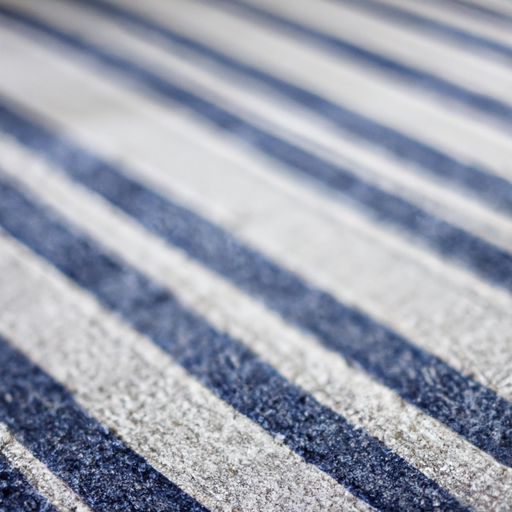This blog post provides a comprehensive guide on how often you should clean your carpets to maintain their aesthetic appeal and durability. It delves into various factors that influence the frequency of carpet cleaning, the benefits of regular cleaning, and the implications of neglecting this important task.
How Do Your Lifestyle Factors Influence Carpet Cleaning Frequency?
Your lifestyle plays a significant role in determining how often you should clean your carpets. Factors such as the number of occupants in your home, the presence of pets, and the amount of foot traffic can greatly influence the frequency of carpet cleaning.
If you have a large family or regularly entertain guests, your carpets are more likely to accumulate dirt, dust, and stains. Likewise, if you have pets that shed hair or have accidents, your carpets will require more frequent cleaning to maintain a clean and odor-free environment. Additionally, if you live in an area with high humidity or near a busy street, your carpets may attract more dirt and pollutants, requiring more frequent cleaning.
Furthermore, the amount of foot traffic in your home can determine how often you should clean your carpets. High-traffic areas such as hallways, living rooms, and entryways are more prone to dirt and wear. If you notice visible signs of dirt or wear in these areas, it is a good indication that it's time for a thorough carpet cleaning.

Image of a busy family home with children and pets which contributes to a higher carpet cleaning frequency.
למידע נוסף בנושא של How Often Should You Clean Your Carpets? עליך לבדוק כאן: dream-carpets.net
What Are the Consequences of Infrequent Carpet Cleaning?
Infrequent carpet cleaning can have several negative consequences that can impact both the appearance and the health of your home. First, dirt, dust, and allergens can accumulate deep within the carpet fibers over time. This build-up can lead to poor indoor air quality, triggering allergies, respiratory issues, and other health problems, especially for those with sensitivities or asthma. Regular carpet cleaning helps to remove these contaminants, promoting a healthier living environment for you and your family.
Additionally, infrequent cleaning can cause stains and spills to set in permanently. When spills are not promptly treated, they can penetrate the carpet fibers and become harder to remove. Over time, these stains can become unsightly and even create an unpleasant odor in your home. Regular carpet cleaning can prevent stains from setting in, preserving the appearance of your carpets and extending their lifespan.
Another consequence of infrequent carpet cleaning is the deterioration of carpet fibers. Dirt and debris that are left unattended for extended periods can act as abrasive particles, causing the fibers to wear down more quickly. This can lead to thinning carpets, matting, and an overall worn-out appearance. Regular cleaning removes these abrasive particles, helping to maintain the integrity and longevity of your carpets.
Furthermore, neglecting regular carpet cleaning can also impact the overall cleanliness of your home. As dirt and dust accumulate in the carpets, they can easily be spread throughout the house, settling on surfaces and contributing to a dusty and unclean environment. This can create a constant battle with dusting and cleaning other areas of your home. By regularly cleaning your carpets, you can prevent dirt from being tracked around and keep your entire living space cleaner and more hygienic.
"A stitch in time saves nine": The Benefits of Regular Carpet Cleaning
Regular carpet cleaning offers a multitude of benefits that go beyond just maintaining the appearance of your carpets. One of the key advantages is the prevention of long-term damage. By addressing dirt, stains, and spills promptly, you can prevent them from becoming deeply embedded in the carpet fibers, making them much more difficult to remove later on. This proactive approach can save you time, money, and the headache of dealing with stubborn stains down the line.
Another benefit of regular carpet cleaning is the elimination of odors. Over time, carpets can trap unpleasant odors from spills, pets, or general household odors. These odors can linger and make your home feel less inviting. Professional carpet cleaning not only removes dirt and stains but also deodorizes the carpets, leaving them smelling fresh and clean.
Regular carpet cleaning also contributes to a healthier living environment. Carpets can harbor allergens, dust mites, and other microscopic particles that can trigger allergies and respiratory issues. By removing these contaminants through regular cleaning, you can improve indoor air quality and reduce the risk of health problems for you and your family.
Furthermore, regular carpet cleaning helps to extend the life of your carpets. Dirt and debris can act as abrasives, wearing down the carpet fibers and causing them to become frayed and thin. By regularly removing this build-up, you can prevent premature wear and tear, preserving the quality and longevity of your carpets. This not only saves you money in the long run but also keeps your carpets looking and feeling their best.

Photograph of a clean, vibrant carpet in a well-maintained living room.
Can Regular Vacuuming Reduce the Need for Professional Carpet Cleaning?
Regular vacuuming is an essential part of carpet maintenance, but it alone cannot completely eliminate the need for professional carpet cleaning. While vacuuming helps to remove loose dirt, dust, and debris from the surface of the carpet, it is not effective at removing deep-seated dirt and stains that have settled into the fibers over time. Professional carpet cleaning methods, such as steam cleaning or hot water extraction, are designed to penetrate deep into the carpet and extract embedded dirt and stains.
Moreover, regular vacuuming may not be sufficient to remove allergens and microscopic particles that can trigger allergies and respiratory issues. These particles can settle deep within the carpet, making it necessary to have professional cleaning to thoroughly remove them. Professional carpet cleaning methods are specifically designed to eliminate allergens and improve indoor air quality.
Additionally, regular vacuuming alone cannot remove tough stains and odors that have become deeply embedded in the carpet. Professional carpet cleaners have access to specialized equipment and cleaning solutions that are more effective in treating and removing stubborn stains and odors. They are trained to identify the best approach for different types of stains and fabrics, ensuring that your carpets are thoroughly cleaned and restored.
In conclusion, while regular vacuuming is important for maintaining the cleanliness of your carpets, it cannot replace the need for professional carpet cleaning. Professional cleaning methods are necessary to remove deep-seated dirt, allergens, tough stains, and odors that regular vacuuming alone cannot effectively address. By combining regular vacuuming with periodic professional cleaning, you can ensure that your carpets remain clean, fresh, and in optimal condition for years to come.
Frequency of Carpet Cleaning:
| Carpet Type | Regular vacuuming | Deep Cleaning | Steam Cleaning |
|---|---|---|---|
| Synthetic | Weekly | Every 6 Months | Yearly |
| Wool | Weekly | Every 4 Months | Every 18 Months |
| Sisal or Jute | Weekly | Every 6 Months | Every 2 Years |
| Seagrass | Weekly | Every 4 Months | Every 2 Years |
In essence, the frequency of carpet cleaning depends on various factors such as the number of occupants, presence of pets or children, and the color and quality of your carpet. While professional cleaning once a year is a standard recommendation, circumstances may require you to do it more frequently. Regular vacuuming and immediate stain removal can prolong the periods between professional cleaning. Remember, a clean carpet not only enhances the beauty of your home, but also contributes to a healthier living environment.





